
All quiet in Davos

Without the World Economic Forum (WEF) and the Spengler Cup, Davos is caught up in a particularly hard pandemic winter. But a visit to the town reveals a spirit of optimism.
The speakers are blaring upbeat music by Robbie Williams. A sign advertises “glühwein for 5 francs.”
From the frozen lake comes the smacking sound of ice-hockey sticks. The mood is cheerful at the Dorfseeli park in Davos on the second weekend in January. A 14-year-old boy who is lacing up his skates says he only notices the pandemic restrictions in school.
Sitting by the classroom window, he freezes because the room is aired not just during breaks but also in the middle of every lesson. Morning temperatures of minus 12 degrees Celsius are not uncommon in Davos, which is situated at an altitude of almost 1,600 metres.
Benjamin von Wyl, born in 1990 in Aargau, is a freelance journalist who works, among others, for swissinfo.ch and for the weekly newspaper WOZ.
His latest novel “Hyäne,” published in September 2020, has been awarded the 2021 Swiss Literature Prize by the Federal Office of Culture.
His 2017 literary debut, “Land ganz nah,” also earned him laurels – an award from the canton of Zurich. Von Wyl lives in Basel.
Here by the lake, it’s almost possible to forget the pandemic – in part because not everyone on the ice is wearing a mask. Masks are in fact obligatory in the whole town centre, and occasionally a municipal employee issues a friendly reminder.
Both the mask requirement and the enforcement are exceptions in Switzerland. In the Dorfseeli park, that raises some tempers. Some think these measures and the closure of restaurants are excessive. Everyone hopes the ski pistes remain open and that they can carry on playing hockey.
WEF as a “money machine”
We probably shouldn’t begrudge these people of Davos their carefree state of mind, because the highest-altitude town in Europe has been hit hard by the pandemic. The WEF conference, which in previous years has brought Davos tens of millions of francs and the attention of the international media, is not taking place here in 2021.
What’s more, the storied Spengler Cup, the oldest and best-known international ice-hockey tournament for club teams, was scrubbed at the end of December. According to 2014 calculations by the Swiss business magazine “Bilanz,” the five days of WEF alone account for more than 31,000 overnight stays in hotels and accommodation.
swissinfo.ch requested interviews at five luxury hotels – they all refused! At the Hotel Intercontinental, where US President Donald Trump stayed during a WEF visit, we heard that it was not clear how things will pan out. Two days later, the five-star hotel announced it is closing for at least a month. It remains unclear if it will open again in the spring.
“Some are closing for the foreseeable future. It’s tough,” says an event manager at the Berghotel Schatzalp near the valley lift station. Still, after Christmas there were long queues for the cable cars, he says. But to ensure social distancing, they need additional personnel. So running the cable cars is more expensive than usual.
At least the snow helped
The mountain railways of the region carried about 10% more passengers in the run up to New Year’s Eve than the average over the past five years. The reason for that was the early snow. But now the local newspaper is anticipating “a month to be forgotten.” That was even before the government ordered the closure of all non-essential shops and tightened restrictions on social contacts.
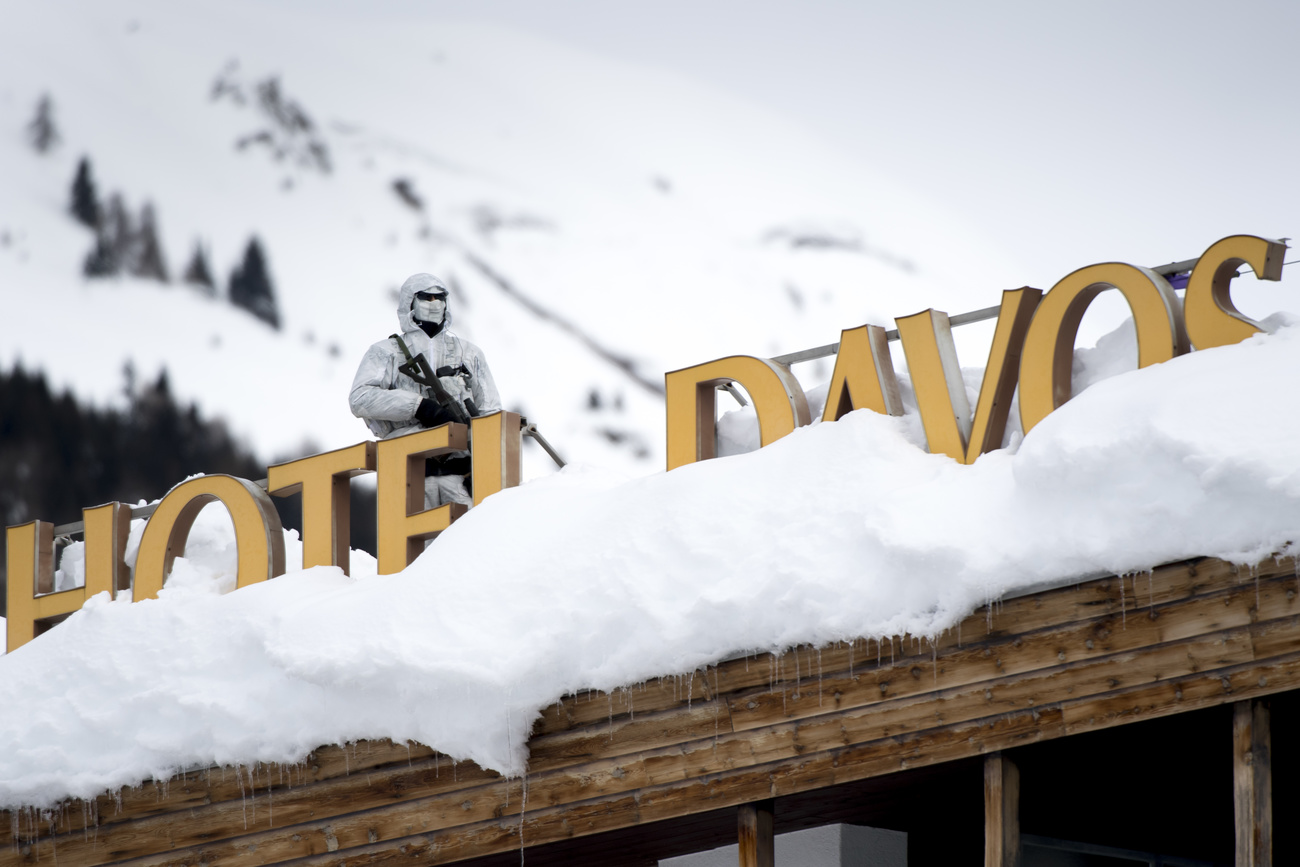
More
WEF’s Asian relocation to cost Switzerland tens of millions
The 6,500 seats in the ice-hockey stadium where Spengler Cup matches are played stand empty. HC Davos, the Swiss ice-hockey club, turns 100 in 2021.
“We will celebrate,” says CEO Marc Gianola, “But it will definitely be quite humble and there will be no wild jubilation.” The humility is not a result of economic losses or games in front of empty seats, he says. It is a question of respect for those who are not in the mood to celebrate during the pandemic.
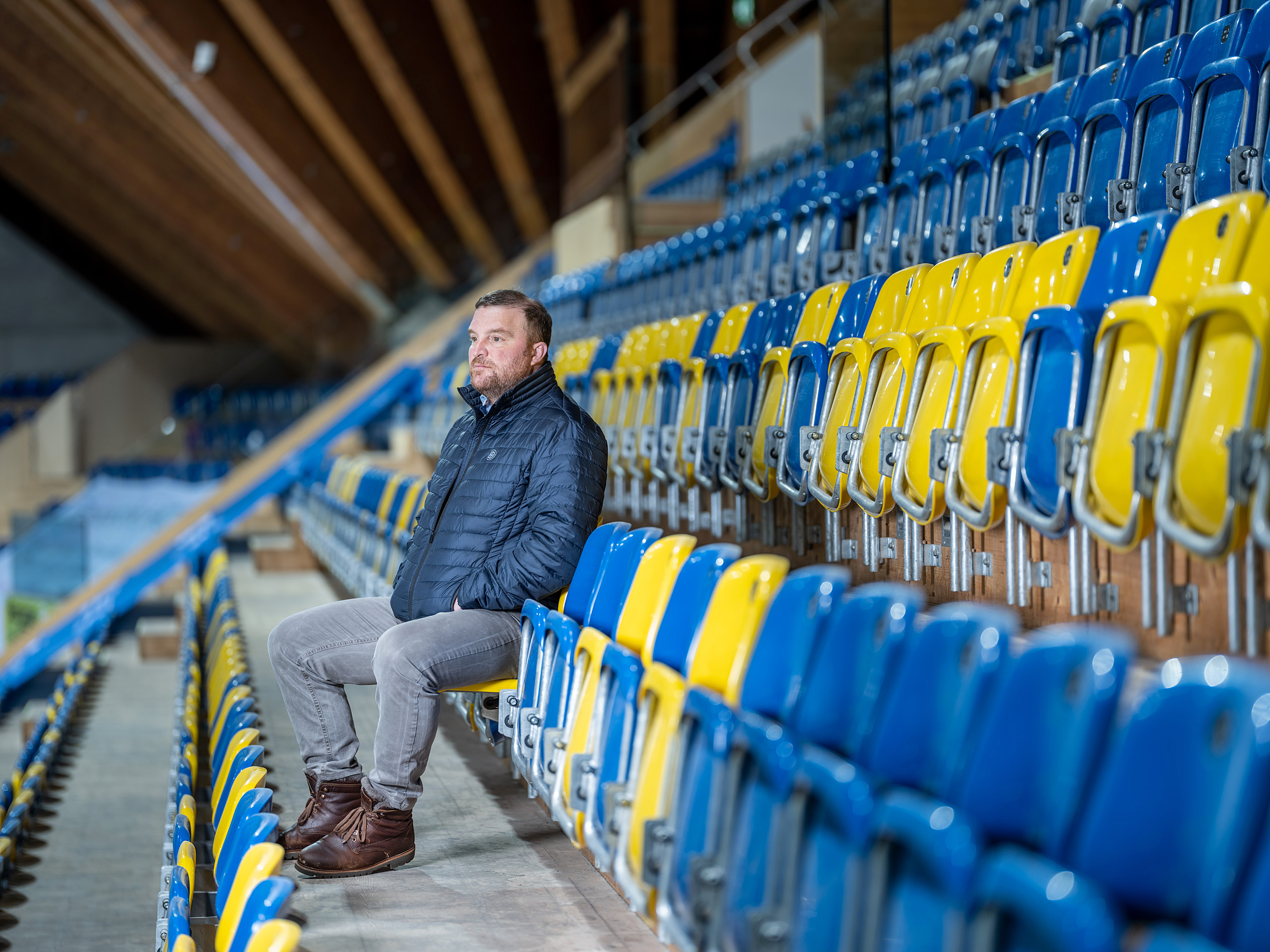
Gianola’s hockey career brought him to HCD and the region almost 30 years ago. He grew up near St Moritz. “St Moritz attracts well-to-do visitors who want to go for little walks. Here we have active visitors who ski,” he says.
Luxury hotels in Davos count on the WEF annual meeting. It will take years to compensate for the losses of 2021. Gianola is of course more directly affected by the cancelled Spengler Cup. Even when it plays with spectators, the HCD hockey season is loss-making, he says. Only the Spengler Cup is profitable and enables the club to run on an annual budget of CHF29 million ($32.5 million). Sponsors are also important, most of whom are people with second homes in Davos.
All the neighbours in the district where Gianola lives are “second homers.” But they are also neighbours. Only about 40% of the apartments are permanently inhabited. Some people cross-finance their holiday apartments with lucrative rentals during WEF.
Clean air without WEF
Gianola is optimistic that the World Economic Forum summit will return. When WEF is on, he usually only joins in the government aperitif at the ice-hockey stadium, but he doesn’t feel inconvenienced by the event. The barricades, military presence and transport standstill don’t bother Gianola. For those few days, he says he prefers walking to working.
A study during WEF in 2018 showed that particulate matter pollution is regularly at double the advisable limit during the event. “Davos is not really able to handle all these limousines,” says Cäcilia Bardill, a retired music teacher who has lived in Davos for more than 50 years. On occasion she has offered shelter to critical activists during the WEF, but she doesn’t want to “completely condemn” the event. “I find Klaus Schwab’s fundamental idea good: we should speak to each other to create a more social economy.”
Perhaps, she says, what was once a small conference for managers has at some point grown too large?

In one of the early years she, together with three flute students, organised an afternoon of music for the participants’ spouses. “Today it’s unthinkable that a music school would be able to meet their expectations!” But as an optimist, she is convinced that one cancelled WEF doesn’t herald the downfall of Davos. When WEF took place in New York in 2002, the town survived.
“Davos is a very open place,” is what I hear from everyone here. The town has been international for much longer than the history of the World Economic Forum. Almost half of the people who lived in Davos in 1920 had no Swiss passport. Unfortunately, Davos became a Nazi stronghold in Switzerland.
From spa to sports resort
Once upon a time, Davos was a farming village that then flourished as a health resort. As the spa clinics sprung up at the turn of the 20th century, so did the first research institutes. The son of one spa pioneer founded the Spengler Cup in 1924, which turned Davos into a hub for sports. In time, medicine made spa sojourns for tuberculosis increasingly unnecessary, so Davos began to develop a new area of economic activity as a location for business congresses.
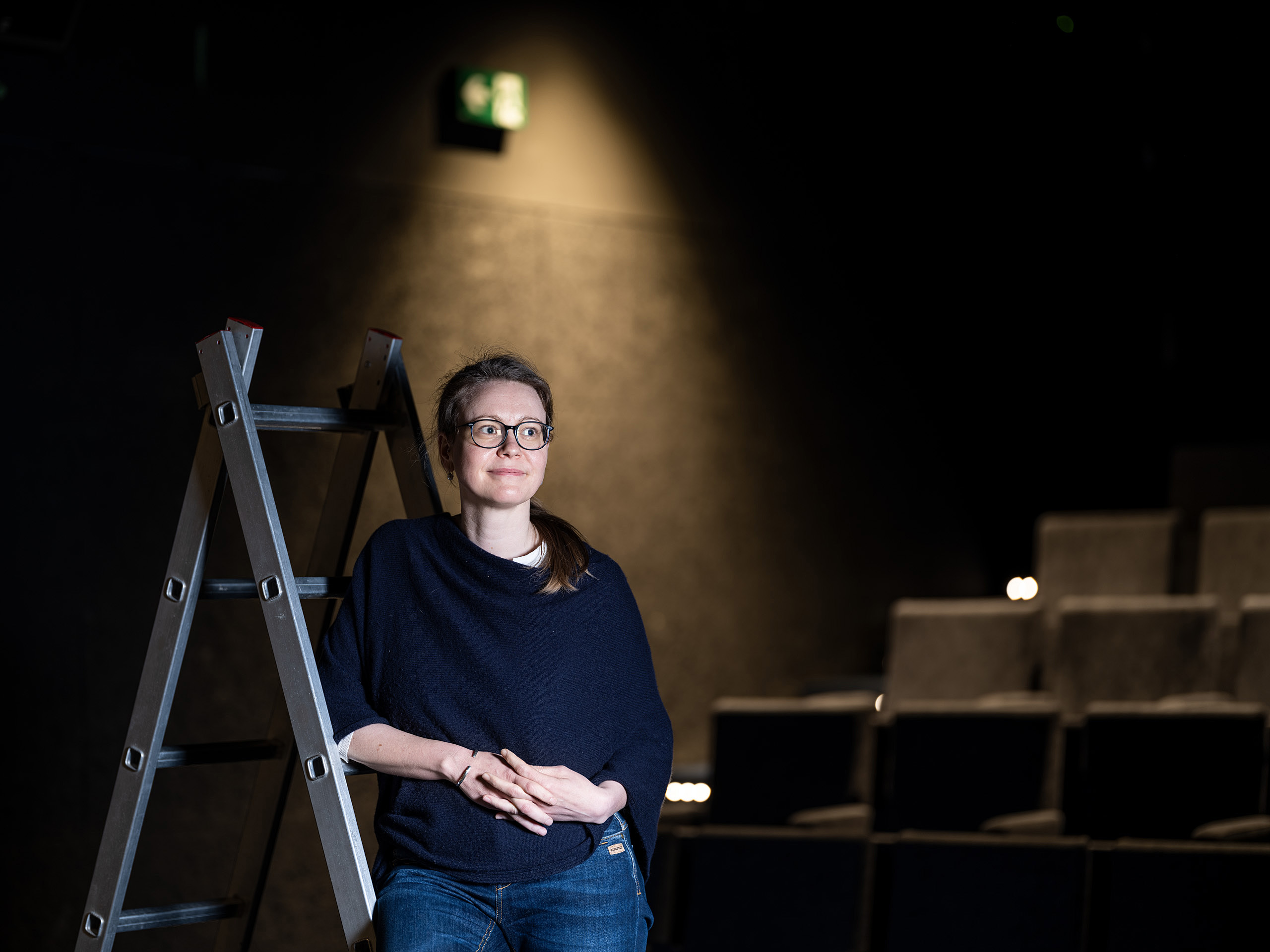
“This is a moment of crisis,” says Anka Topp, a German who came to the mountains of Graubünden six years ago to run a classical music festival. “Davos might have to reinvent itself again,” she says. If that does prove necessary, she believes culture should play a big role.
Beyond her job, Topp works tirelessly for the local cultural life. For the first time, the municipal government has signed off on a cultural strategy. This includes a new cultural centre, to be called “Kulturplatz Davos.” The head of construction calls across the lobby of the centre: “Before you open, this has to be improved.” Topp laughs back. “Take your time,” she says. “The authorities are making sure it won’t be that soon.”
In December Topp, the president of the board of trustees, was still hoping that the new cultural centre, with professional management, would receive an appropriate opening ceremony. But those plans were also cancelled.
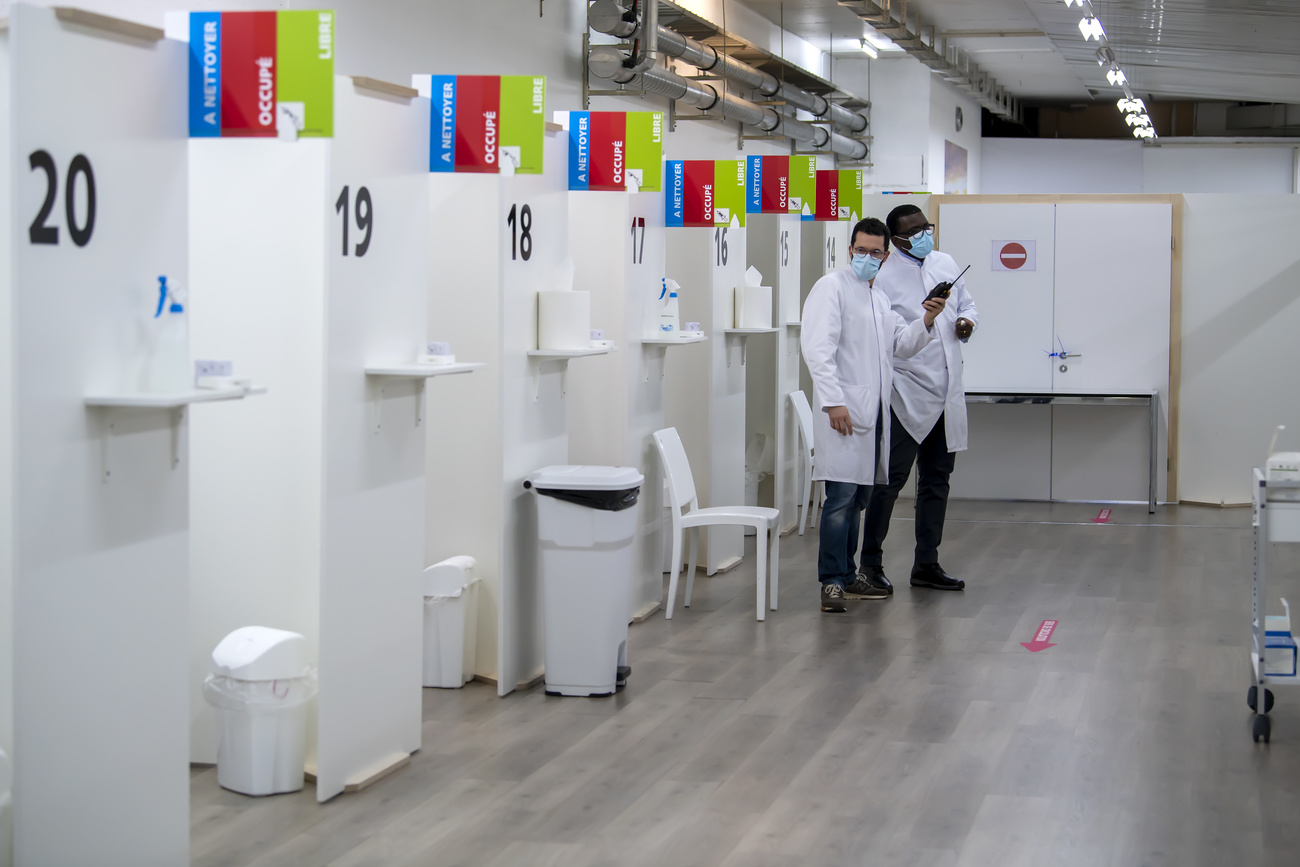
More
Switzerland’s stop-and-go march to vaccinate everyone by the summer
Cultural construction site
“We don’t know when we can plan events and of what size,” says Topp. “But we are not sticking our heads in the sand in response.” Topp is also optimistic. As soon as it is possible, people will go back to the theatre and cinema, she says. That communal experience cannot be replaced by “Netflix and co,” she says. But she says it is also the case that the wide array of bars and restaurants help to create the aura of city life in Davos. Topp hopes that as many of them as possible will survive the crisis.
Some closed restaurants are now offering take-away raclette or pizza. Some say they are doing brisk business, while others are only accepting cash because they stopped doing credit-card business to save money. A quick survey of the shops for sporting goods, household products and books on the Promenade in the town centre revealed that business in early January was “better than expected.” But they have now also been told to close.

“Well what can you do?” says Bruno Pereira. His Portuguese grocery shop off the elegant Promenade is allowed to stay open. He isn’t complaining about sales, but about the fact that his hours in his primary job have been reduced. He can’t enjoy his new leisure time because the missing income leaves a painful gap. “Other families have it much harder,” Pereira says. “Some of my fellow workers have been made redundant after many years because the hotels are closing.” At peak times in normal years, thousands of Portuguese work on Davos building sites and in the hotels, he says. “The good thing is that everyone is helping each other and lending support. The sense of community here is wonderful.”
Windows without displays
The empty store windows on the Promenade do not bear witness to the death of the shops – the reality is that some of these are only in use during WEF, says the new mayor, Philipp Wilhelm. “Some of them do the majority of their annual business in a few days,” he says – an example of the economic reliance some have developed on WEF. This, he says, isn’t a good thing for a lively town.

Wilhelm is the first centre-left Social Democrat to become mayor – his election marks a radical change of direction. “I didn’t demonstrate to protest against WEF in Davos, but I demonstrated during WEF meetings for a better world,” he stresses. Wilhelm is confident that the 2022 WEF will take place in Davos again. “What is decisive for conference tourism and international tourism is that Switzerland succeeds in getting the pandemic under control.”
So far, he has only experienced his job in crisis mode. “Keeping the numbers of infections down and compensating the businesses affected,” is his credo. But he says this all serves as a fundamental reminder to Davos that success is not to be taken for granted. He sees a need for new tourism ideas.
One way to develop further as a destination has been revealed by the pandemic. The second homeowners who are working from home are now there more often. “So why don’t we promote rental apartments and co-working spaces for people who want to work for a few days or a few weeks here in nature?”
At the Dorfseeli park, people also have faith in the future of Davos, even if this is expressed more coarsely. “I am not afraid,” says one young father. “And my sympathy is limited. Davos is a money-making machine!” There have been many good years, and there will be many more, he says.

In compliance with the JTI standards
More: SWI swissinfo.ch certified by the Journalism Trust Initiative

































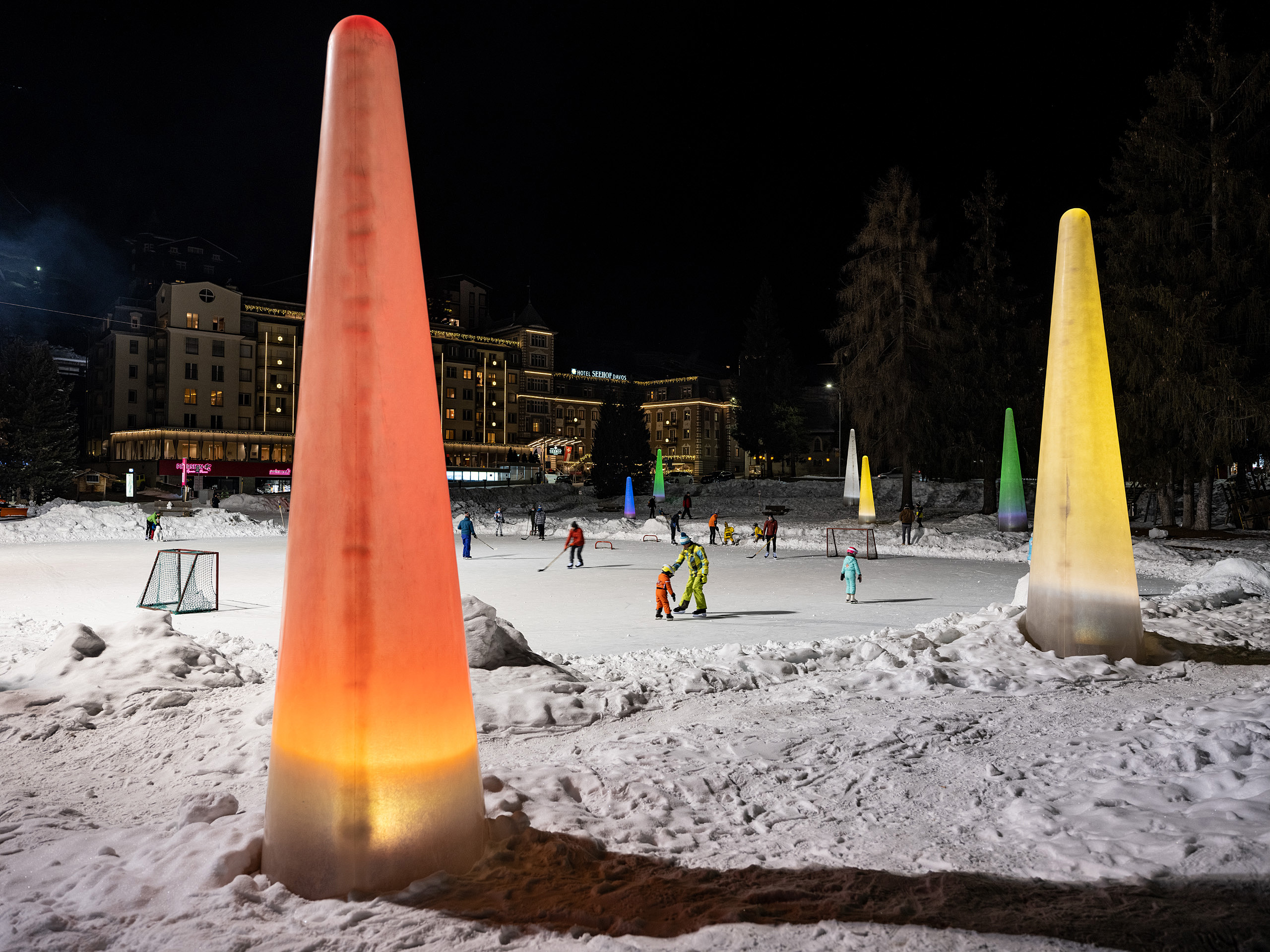




Join the conversation!